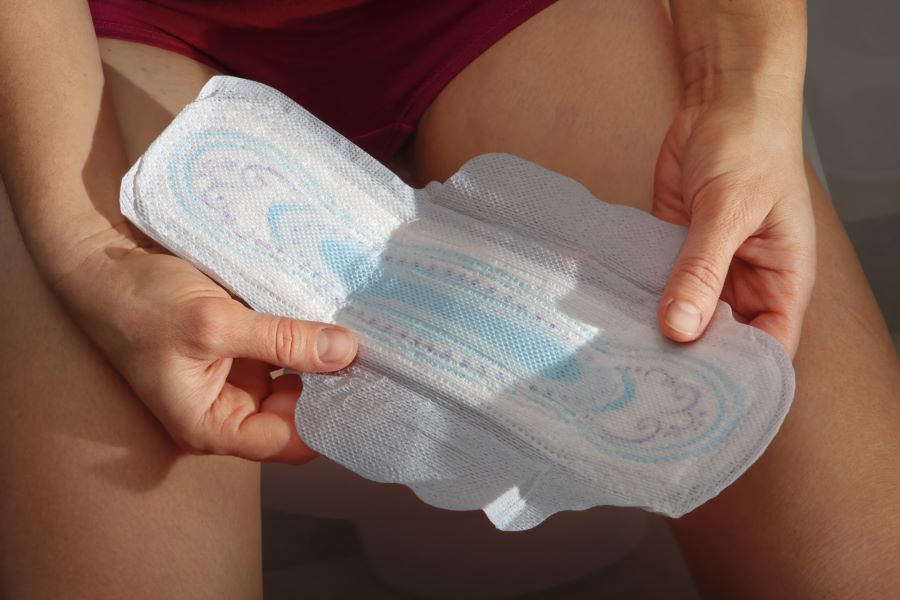Nurse Alice Igbinovia, a healthcare professional with experience in women’s health, has recently addressed the critical issues of menstrual health, the menstrual cycle, challenges faced by young girls, and the soaring costs of menstrual hygiene products in the country. In a candid conversation with “Pottage of Health,” Nurse Igbinovia not only highlighted the pressing concerns but also provided in-depth insights into the menstrual cycle and its importance in women’s health.
Menstrual Health and Education: A Vital Necessity
Nurse Alice Igbinovia began by emphasizing the importance of menstrual health and education. “Menstruation is a natural and essential part of a woman’s life, and it is crucial that girls are educated about it,” she stated. Comprehensive menstrual health education is currently lacking in many parts of Nigeria, which leaves young girls uninformed and vulnerable.
Nurse Igbinovia delved into the significance of understanding the menstrual cycle, which typically spans around 28 days. “The menstrual cycle is a natural biological process that involves a series of events within a woman’s body,” she explained. “It consists of four distinct phases: the menstruation phase, the follicular phase, the ovulation phase, and the luteal phase.”
- Menstruation Phase: The first phase of the menstrual cycle is menstruation, during which the uterine lining is shed. This typically lasts 3-7 days and is accompanied by bleeding.
- Follicular Phase: After menstruation, the follicular phase begins. This phase lasts about 7-21 days and involves the development of follicles in the ovaries, one of which will mature into an egg.
- Ovulation Phase: Ovulation is a critical event in the menstrual cycle and occurs around the midpoint, typically on day 14. It involves the release of a mature egg from the ovary.
- Luteal Phase: The final phase is the luteal phase, which lasts around 14 days. If fertilization of the egg occurs, this phase supports early pregnancy. If not, it prepares the body for the next menstrual cycle.
She further discussed that the length of the menstrual cycle varies from woman to woman, but the average is to have periods every 28 days. Regular cycles can be longer or shorter than this, and it varies from 23 to 35 days. According to Nurse Igbinovia the menstrual cycle is the time from the first day of a woman’s period to the day before her next period.
Challenges Faced by Young Girls
Nurse Igbinovia transitioned to discussing the challenges faced by young girls during their menstrual cycles. She explained how cultural taboos, myths, and misconceptions often contribute to these challenges. “In many communities, menstruation is viewed as a topic to be whispered about, if discussed at all,” she said. “The silence and lack of knowledge create an environment where young girls feel ashamed, scared, and unprepared.”
One of the most significant challenges is the lack of access to menstrual hygiene products. Many girls, particularly those from low-income backgrounds, cannot afford sanitary pads. Nurse Igbinovia stressed that this issue goes beyond comfort and convenience. “The lack of proper menstrual hygiene products puts these girls at risk of infections and discomfort. It often results in missed school days, hindering their education and overall development.”
The Soaring Cost of Menstrual Pads
Nurse Igbinovia addressed the pressing issue of the high cost of menstrual pads. “The cost of menstrual hygiene products has skyrocketed in recent years, which makes them unaffordable for many girls and their families,” she lamented. “An average pack of pads costs around 1000 Naira, a significant amount for families struggling to meet basic needs amidst the high cost of living.”
The financial burden of purchasing menstrual pads not only affects the girls but also their families. Nurse Igbinovia explained that the cost can lead to the use of unsanitary alternatives, putting girls’ health at risk. It can also lead to absenteeism from school, further perpetuating the cycle of poverty.
Urgent Need for Change
Nurse Alice Igbinovia called for immediate action to address these challenges and reduce the cost of menstrual hygiene products. “We must prioritize the health and education of our young girls,” she urged. “This means breaking the silence surrounding menstruation, providing comprehensive education, and ensuring that sanitary products are affordable and accessible to all.”
She emphasized that organizations, government agencies, and communities should work together to tackle these issues. “There are initiatives in place, but more is needed. We need to distribute free or subsidized menstrual hygiene products to those in need, implement comprehensive menstrual health education programs, and challenge the stigma and misinformation surrounding menstruation.”
Nurse Igbinovia encouraged the government to consider policies that make menstrual hygiene products more affordable and accessible. “This would be a crucial step in ensuring that menstruation is a period of growth and empowerment for young girls, rather than a source of hardship and suffering.”
Menstrual health and hygiene are pressing concerns, with young girls facing numerous challenges in accessing proper education, affordable sanitary products, and understanding their menstrual cycle. Nurse Alice Igbinovia’s insights shed light on the urgent need for change and the importance of empowering girls with knowledge and access to safe menstrual hygiene products. By addressing these issues, Nigeria can pave the way for a healthier, more informed, and confident generation of young women, irrespective of the high cost of living. Comprehensive menstrual health education, combined with affordable and accessible menstrual hygiene products, can play a significant role in improving the lives of young girls in the country.




👍👍👍
Thanks for this great pies of work
I believe the ancient traditions viewing menstruation should be stopped. Girl hygiene concerning menstruation should be taught in schools and home by parents.
Educative article
Nice read💯
Nice